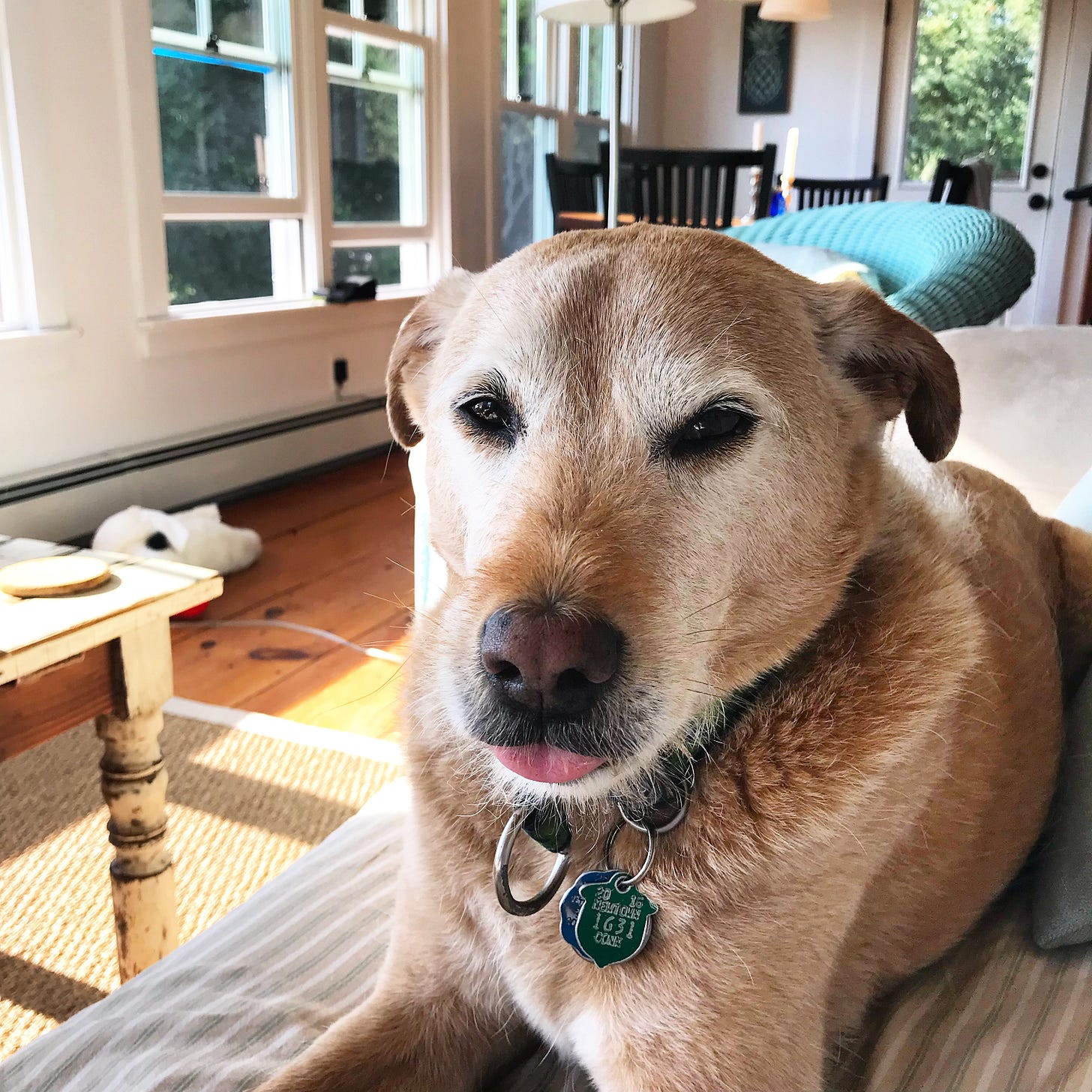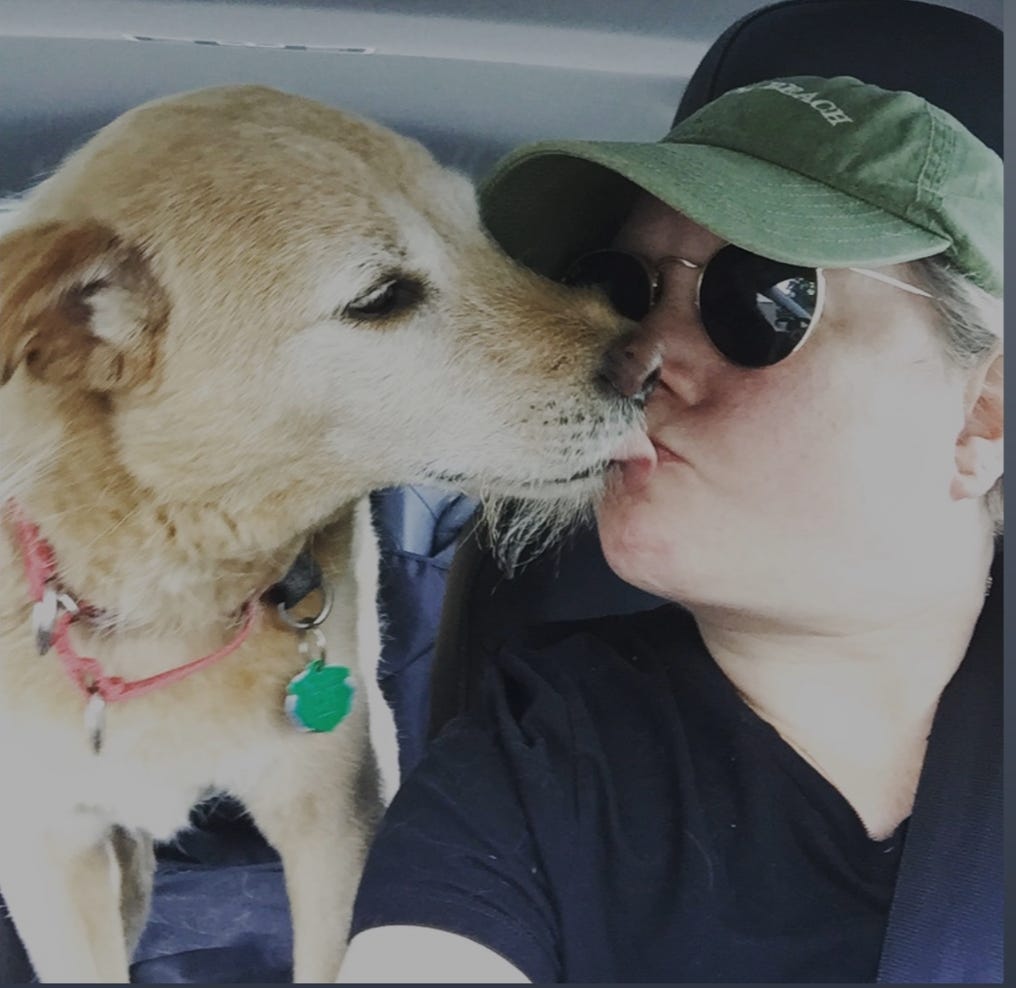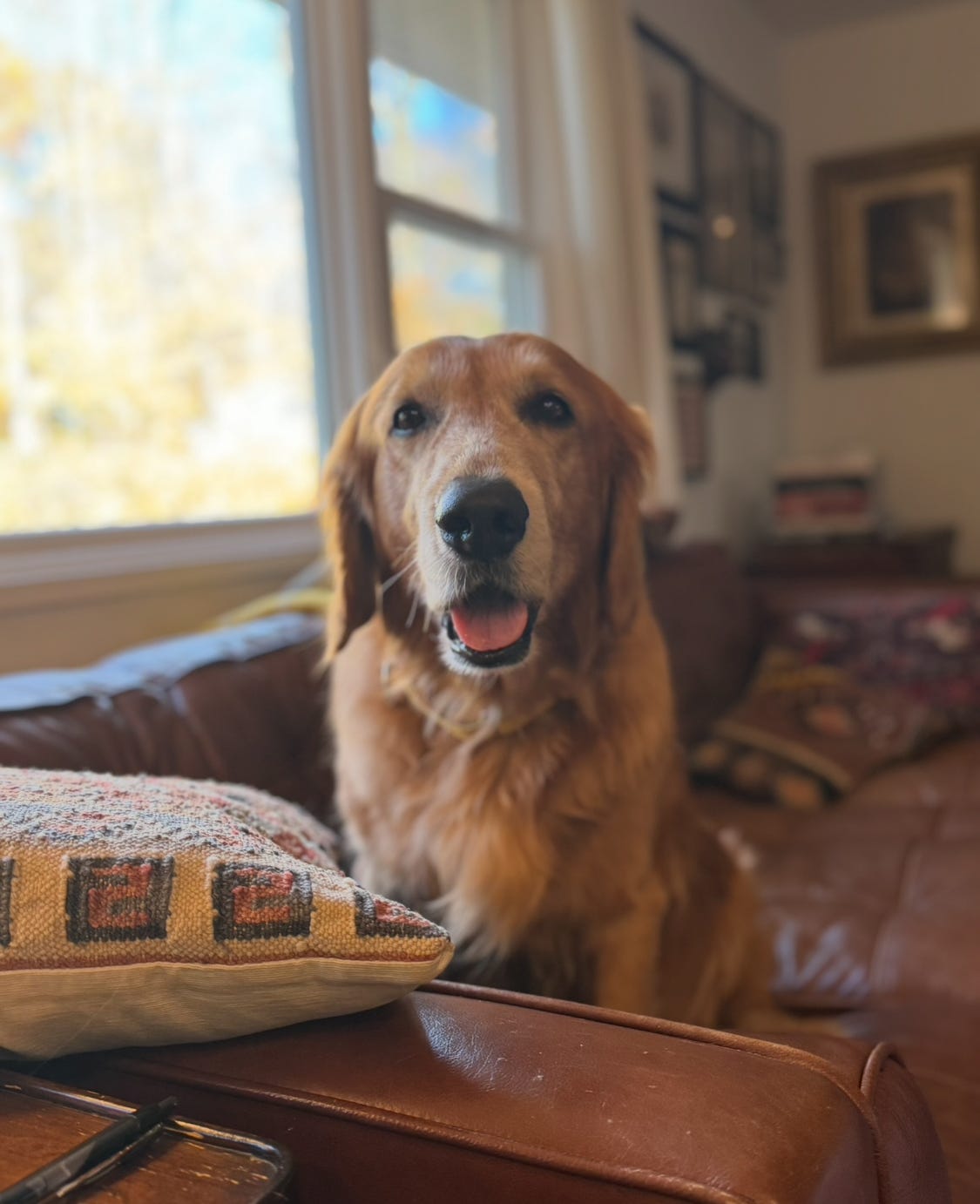It starts with grief, doesn’t it; the mundane particles of sorrow that suffuse the air*, carried on it like pollen in the spring.
I turn to two of my favorite books at times like these: Gail Caldwell’s Let’s Take the Long Way Home (which I have just this second recommended to
) , and Mark Doty’s Dog Years. Then there is Abigail Thomas’s A Three Dog Life, and Mary Oliver’s Percy poems. Percy wakes me and I am not ready./He has slept all night under the covers. There’s Caroline Knapp’s Pack of Two. And there’s Gus, Jane Kenyon’s dog, who waited at the window for her to come home for years after she died, like Hachikō, the Japanese Akita who took himself to the Shibuya train station every day after his master died, to wait for him. For a decade.I can’t do it: I can’t watch movies in which a dog will be inevitably lost, or an animal harmed. I can’t watch Breakfast at Tiffany’s because Holly Golightly, in a fit of pique, tosses her orange tabby, Cat, out of a taxi into the rain. I can’t watch Inside Llewyn Davis because I can intuit that something definitely happens to the cat who appears on the movie poster. In a moment of weakness, I did listen to Cariad Lloyd’s conversation with Monty Don about his beloved Nigel, who died in 2020 during the Covid lockdown; I was in the car and had to pull over because I was sobbing so hard.
He was not crazy about other dogs, but that was easy to overlook, except when he got bounced out of the local doggie daycare for excessive humping.
Grief is tangible; it can be rolled up into little balls and tossed around; it can be held up to the light and turned like a prism, or shaken like a snow globe. I used to believe it was something to be gotten over, to be cured, like a virus. Five stages and then: done. When I lost my father in 2002, a now-estranged cousin admonished me: when her father died, she said, she didn’t have “the luxury of grief.” How ridiculous and cruel, I thought, to measure the sorrow that the human heart can hold, to reduce it to a competition. Animals seem far more sensical: their place in our lives, and their inevitable aging and loss transcends the problems of inter-species communication, and when they are gone, we — and they — grieve together.
Such was our story at the very end of last summer, as the weather was beginning to turn, when our Petey died after almost fifteen years with us. Petey was such a popular dog in our community and far beyond that I decided not to start an Instagram for him because I was far too insecure: I knew that his would outshine mine. But now, every day, our hours are striped with his memory: I can hear his nails on the wooden floor, all over the house. I can hear his bark, which was very often annoying, and, as he lost his hearing, very loud. He had a bizarre coat — it was rough like a terrier’s but also like a herder’s — and what amounted to a mohawk that ran down the center of his back, which appeared when he was around five; twice a year we’d find massive tufts of his yellow fur rolling through the house like tumbleweeds. He loved everyone: children, older people, my mother (who is in a category of her own). He tolerated the cats, who wanted nothing but to snuggle with him. He was not crazy about other dogs, but that was easy to overlook, except when he got bounced out of the local doggie daycare for excessive humping. This was his house, his kingdom, his entire world, and for almost fifteen years, we got to look at it from his perspective; he was so damned smart that I used to joke about having to hide the car keys when he was around.
When we lost him — we finally hit that moment when we knew that he was struggling to breathe in the night, and having to make the decision was and is a personal human hell — we felt strongly that we should not get another dog right away. We needed to mend our hearts. We needed to give ourselves to another dog completely, without them feeling any reticence from us. We needed to go to Maine without him for the first time, and write his name in the sand. We needed time to grieve that sweet fuzzy face with all its attendant nobility and grace and weirdness.
In Let’s Take the Long Way Home — probably my favorite memoir ever written — Gail Caldwell talks about meeting her best friend, Caroline Knapp, over a shared love of dogs (Caroline had a shepherd mix called Lucille, and Gail, a purebred Samoyed called Clementine). Knapp had already written Pack of Two, which followed her acclaimed Drinking: A Love Story (arguably the finest example of writing about addiction in existence). In Caldwell’s book, the dogs play as much a role as the humans. The same is true for Mark Doty’s Dog Years, in which the lives of his dogs — Arden, a large black retriever mix with some likely Newfy blood, and Beau, an emaciated Golden Retriever that Doty springs from a local Cape Cod shelter to bring home to his dying partner, Wally — are plaited together with Doty’s, at a time of impending, and then profound loss. Doty’s dogs force him to step out of himself, out of his interiority, and this is what dogs do, for all of us. A walk is a walk and must be taken, Doty writes in Dog Years, breakfast and dinner come when they are due. The routines of the living are inviolable, no hiatus called on account of misery, spiritual crisis, or awful weather.
Old dogs can be a regal sight. Their exuberance settles over the years into a seasoned nobility, their routines become as locked into yours as the quietest and kindest of marriages. - Gail Caldwell
And so, at a time of loss, stress, and the unknown — Petey died, and almost immediately I found myself in the hellscape that is fighting daily with New York City’s managed Medicaid insurance program on behalf of my elderly mother, and then there was/is our political situation — we decided to welcome into our home a small, twenty-pound(ish) mixed breed. We wound up with an eighty-five-pound purebred Golden Retriever, who had been found wandering around a gas station in Puerto Rico. That’s the way these things go.
Neither of us had ever had a Golden Retriever before, but we’ve known friends who’ve had them. We spent one Christmas holiday about a decade ago babysitting one whose human, a friend of ours, was visiting family in Montana. He was sweet, a tiny bit dim, massive, uncontrollable on leash, fond of street pizza, and loved his people endlessly. So Susan and I put in an application for Fergus, who was then called Buddy (my stepfather’s name, so it had to be changed), and a day or so later, we were approved.
Keep reading with a 7-day free trial
Subscribe to Poor Man's Feast to keep reading this post and get 7 days of free access to the full post archives.








